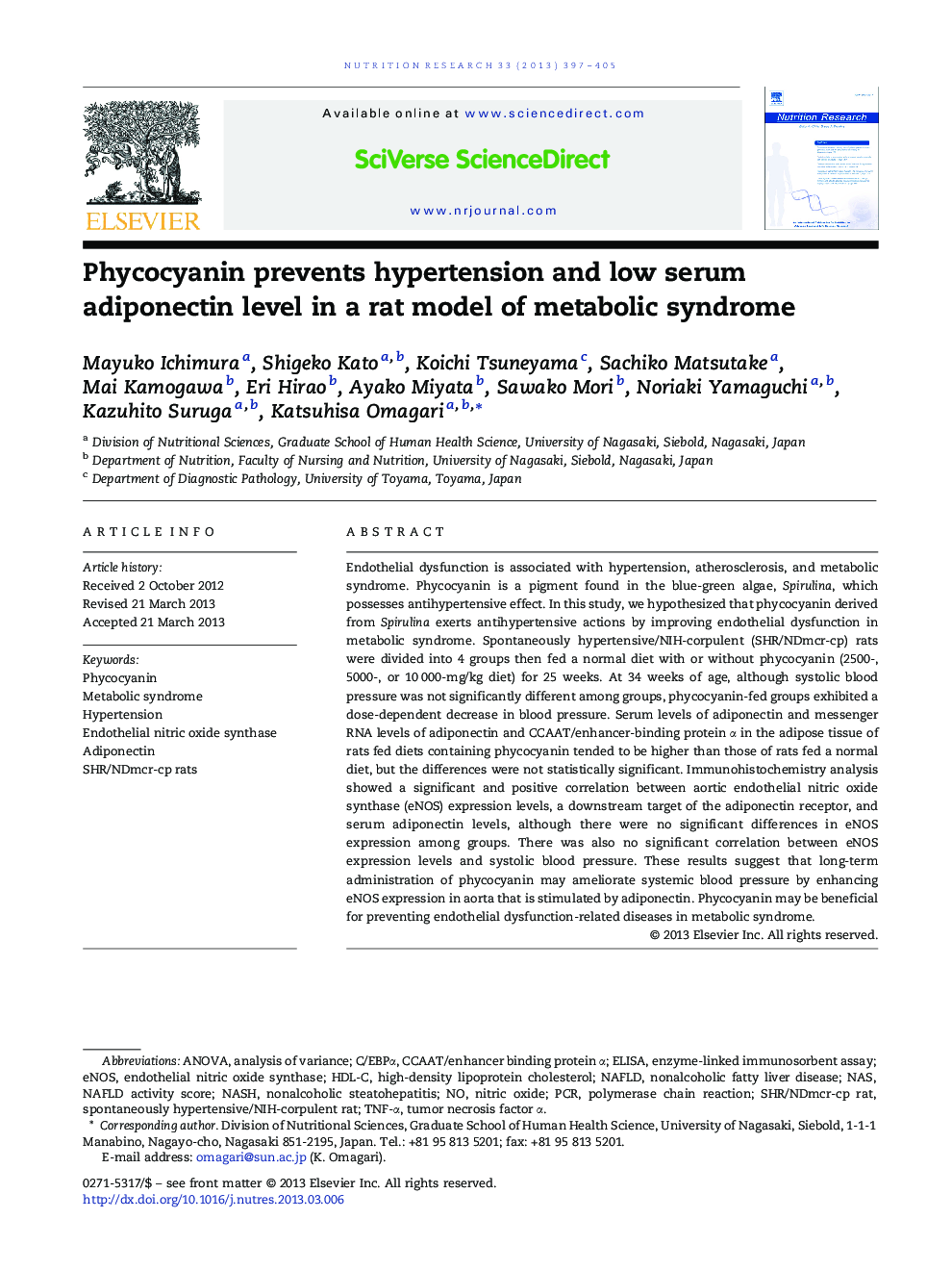| Article ID | Journal | Published Year | Pages | File Type |
|---|---|---|---|---|
| 2809031 | Nutrition Research | 2013 | 9 Pages |
Endothelial dysfunction is associated with hypertension, atherosclerosis, and metabolic syndrome. Phycocyanin is a pigment found in the blue-green algae, Spirulina, which possesses antihypertensive effect. In this study, we hypothesized that phycocyanin derived from Spirulina exerts antihypertensive actions by improving endothelial dysfunction in metabolic syndrome. Spontaneously hypertensive/NIH-corpulent (SHR/NDmcr-cp) rats were divided into 4 groups then fed a normal diet with or without phycocyanin (2500-, 5000-, or 10 000-mg/kg diet) for 25 weeks. At 34 weeks of age, although systolic blood pressure was not significantly different among groups, phycocyanin-fed groups exhibited a dose-dependent decrease in blood pressure. Serum levels of adiponectin and messenger RNA levels of adiponectin and CCAAT/enhancer-binding protein α in the adipose tissue of rats fed diets containing phycocyanin tended to be higher than those of rats fed a normal diet, but the differences were not statistically significant. Immunohistochemistry analysis showed a significant and positive correlation between aortic endothelial nitric oxide synthase (eNOS) expression levels, a downstream target of the adiponectin receptor, and serum adiponectin levels, although there were no significant differences in eNOS expression among groups. There was also no significant correlation between eNOS expression levels and systolic blood pressure. These results suggest that long-term administration of phycocyanin may ameliorate systemic blood pressure by enhancing eNOS expression in aorta that is stimulated by adiponectin. Phycocyanin may be beneficial for preventing endothelial dysfunction-related diseases in metabolic syndrome.
